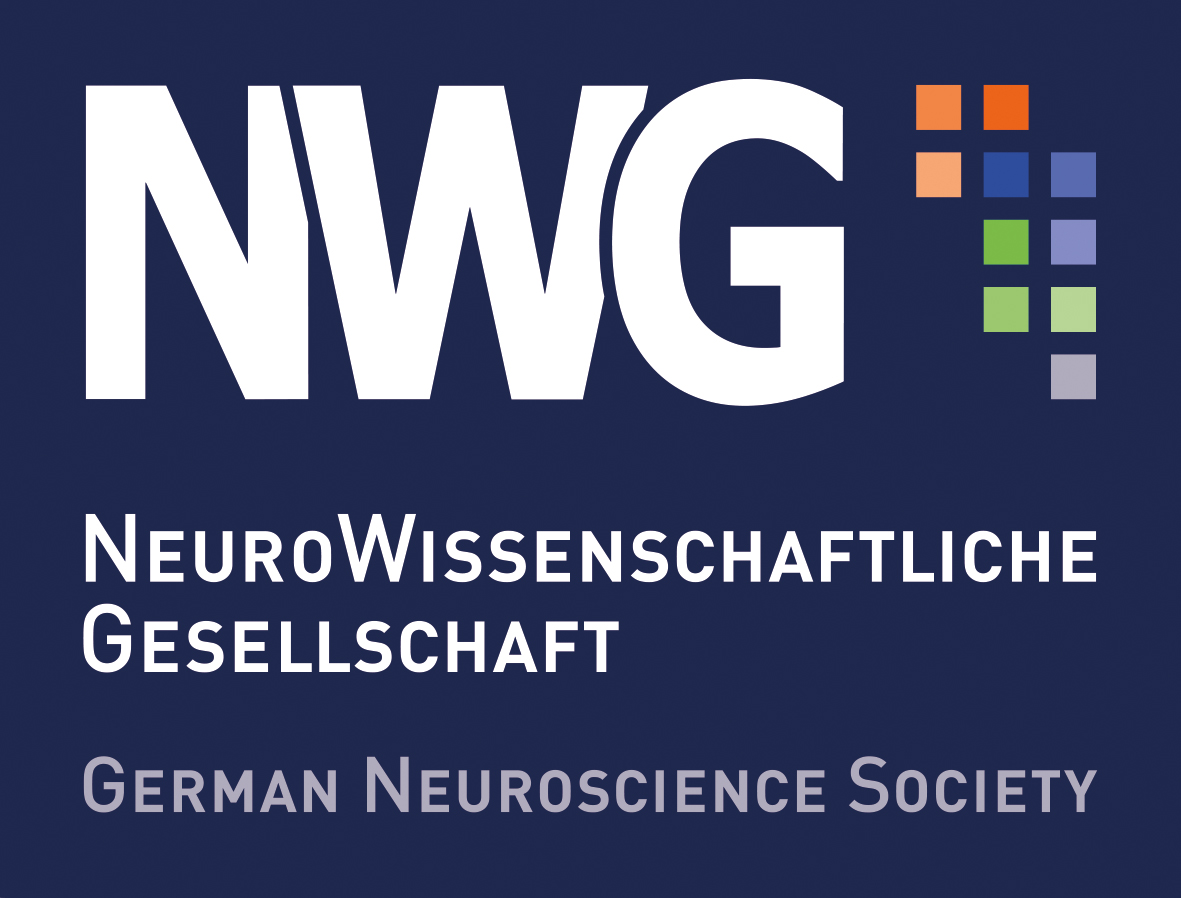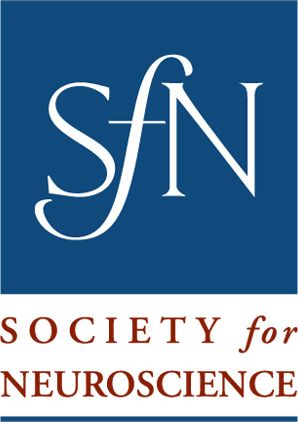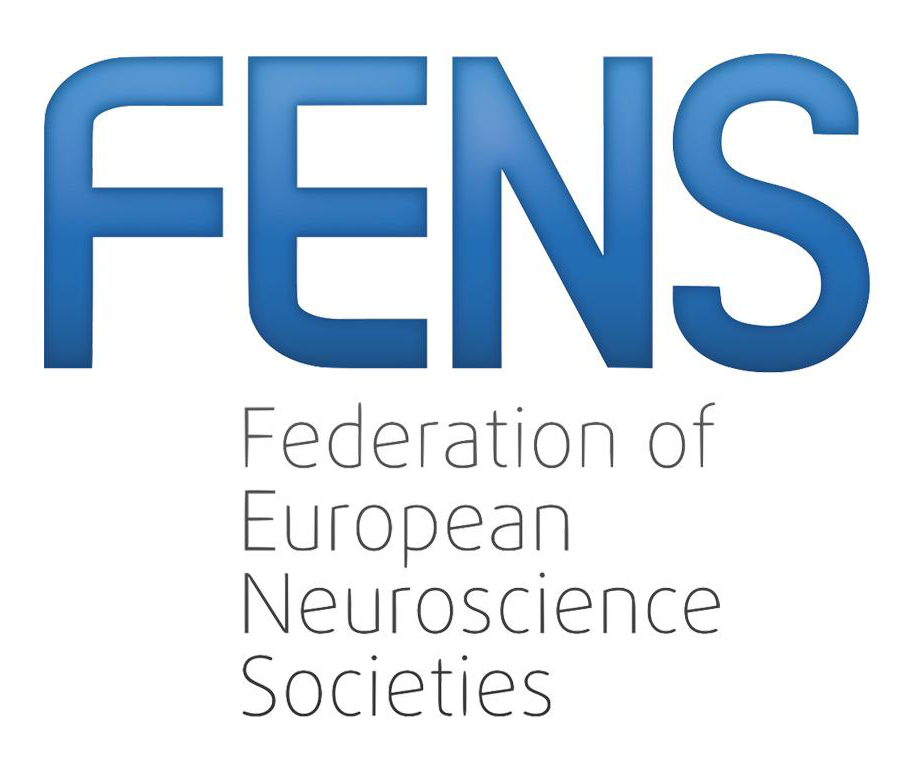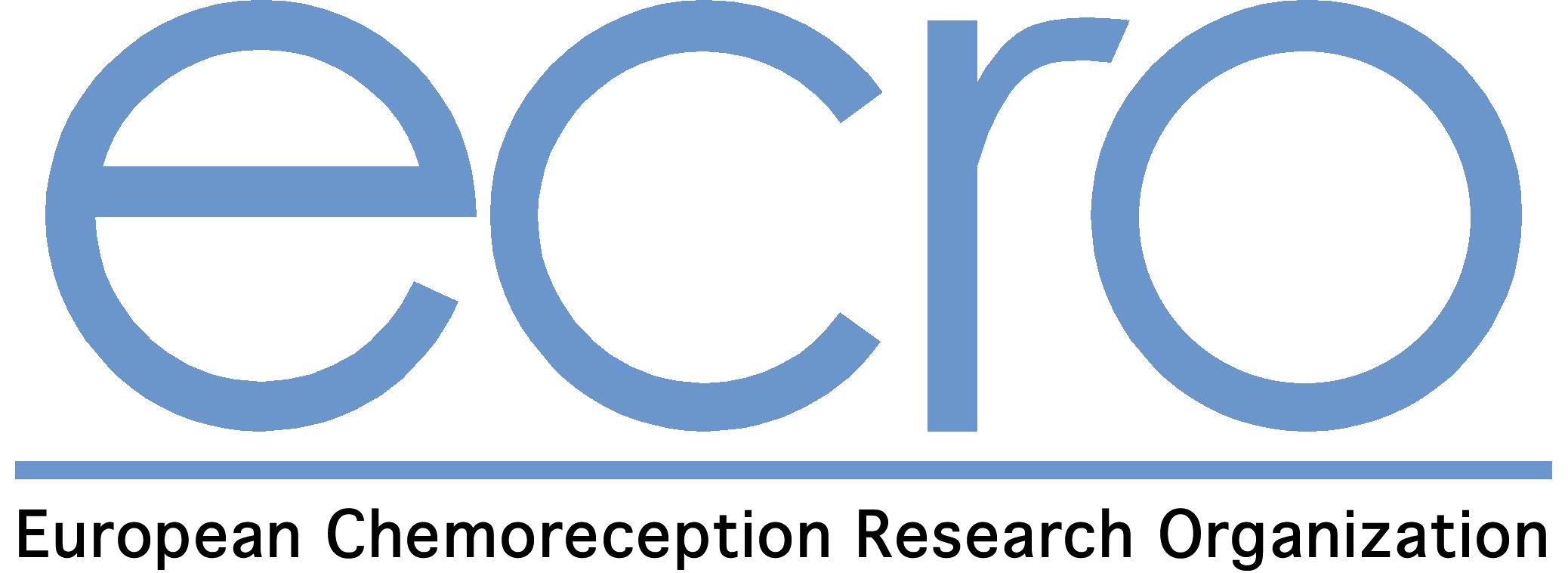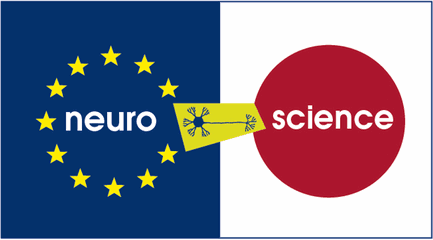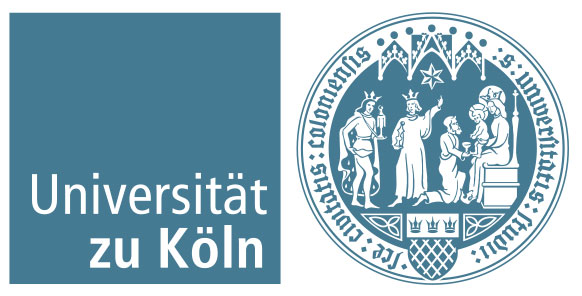Korsching Lab
Neurobiology
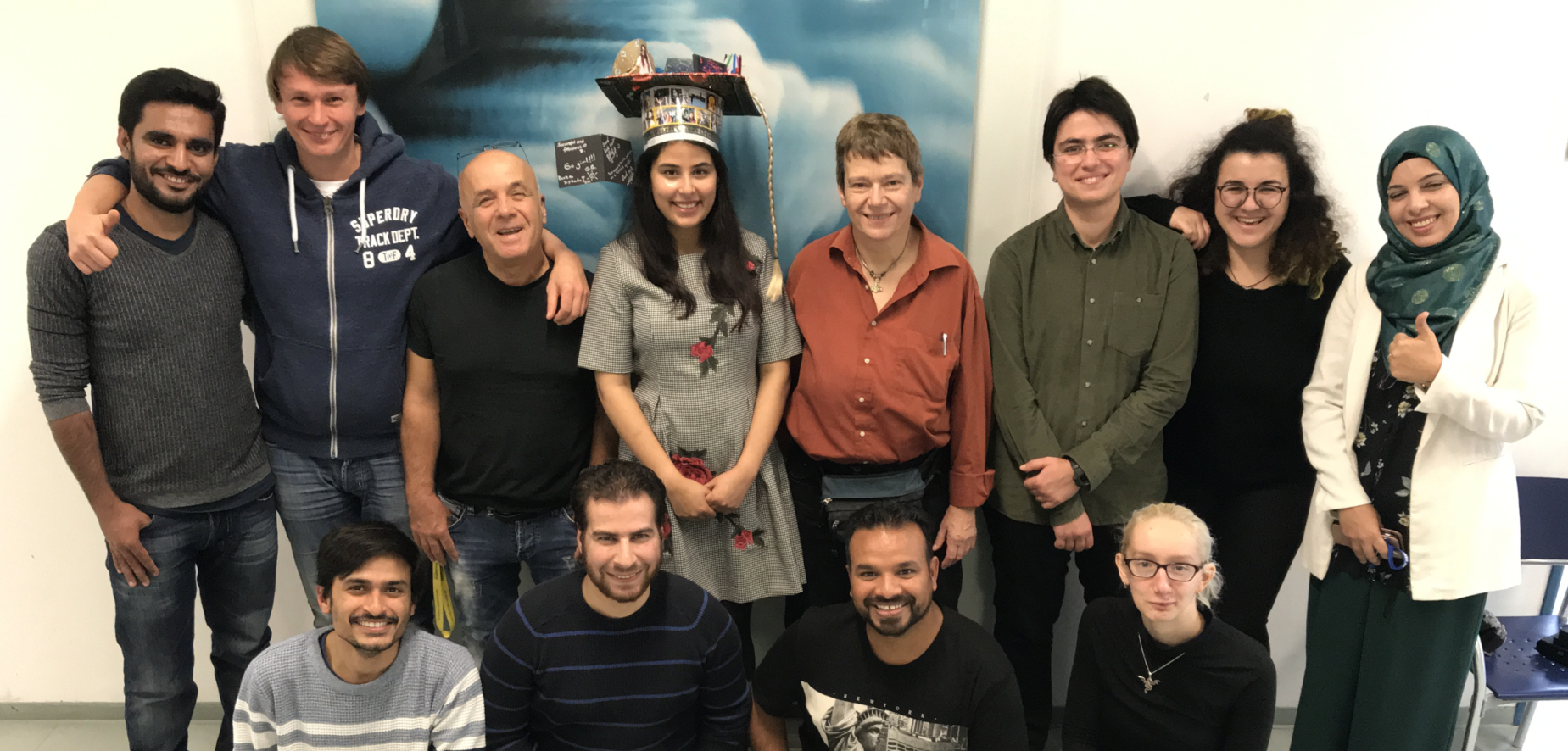
Zülpicher Str. 47a · 50674 Cologne · Germany
tel. 0049-221-470 4843 · fax. 0049-221-470 5172 · sigrun.korsching@uni-koeln.de
Research
Sensation, perception and behavior in vertebrate olfaction and taste
Chemical senses are evolutionarily ancient and required for food detection, food evaluation, prey and predator recognition, reproduction and other intraspecies communication. The two main chemical senses of vertebrates are smell and taste. Characteristics of the olfactory sense include very large receptor families that serve to detect and distinguish tens of thousands of different chemicals. Monogenic expression and axonal convergence generate a receptor map in the olfactory bulb. Labeled line as well as combinatorial coding of odors is observed. In comparision, taste receptor families are generally much smaller and receptors are often co-expressed, in line with the preference of the taste system for categorization over analytical distinction.
To understand chemosensory perception, it is essential to identify the various receptor repertoires, reveal the ligand spectra of individual chemosensory receptors, understand the activation of receptors by their ligands, analyse the modification of the peripheral sensory response by the circuitry of the brain, and examine the generation of behavior by these neural circuits. We employ an array of bioinformatic, molecularbiological, genetic, physiological and behavioral methods to study these questions, often using zebrafish as a vertebrate model system.




Group Members
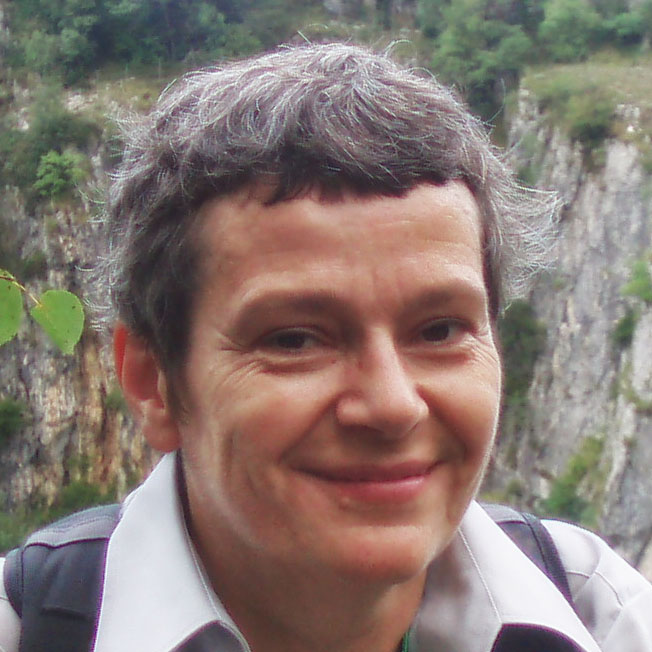
Sigrun Korsching
Lab Head
sigrun.korsching@uni-koeln.de
Positions
| 1995 - present | Professor at the Institute for Genetics, University of Cologne, Germany. |
| 1988 - 1995 | Junior Group Leader, Max-Planck-Institut für Entwicklungsbiologie, Tübingen, Germany. |
| 1986 - 1988 | Postdoctoral Research Fellow, California Institute of Technology, Pasadena, CA, USA. |
| 1985 - 1986 | Research Associate, Max-Planck-Institut für Psychiatrie, München, Germany. |
| 1984 - 1985 | Postdoctoral Research Fellow, Max-Planck-Institut für Psychiatrie, München, Germany. |
Scientific Honors
| 2022 – present | External Advisory Board member, RTG Multiscale Clocks, University of Kassel |
| 2020 – present | Beirat des Mathematisch-Naturwissenschaftlichen Fakultätentags (MNFT), Fachvertreter Biologie |
| 2013 – 2020 | EURON (European Graduate School for Neurosciences) local coordinator for Cologne |
| 2009 - 2011 | President of the German Neuroscience Society (NWG) |
| 2007 - 2009 | Vice President of the German Neuroscience Society (NWG) |
| 1998 | Top ranking grant as co-applicant in a Human Frontier Science Program Research Grant. |
| 1988 | George and Edna Lièvre Fellowship Award of the American Heart Association. |
| 1985 | Otto-Hahn-Medal of the Max-Planck-Society. |
Education
| 1996 | Habilitation in "Biochemistry and Molecular Biology" by the Faculty of Chemistry and Pharmacy, University of Tübingen, Germany. |
| 1994 | Laboratory course "Imaging Structure and Function in the Nervous System", Cold Spring Harbor Laboratory, Long Island, NY, USA. |
| 1984 | Thesis, summa cum laude. |
| 1982 | Lecture course "Developmental Neurobiology" at the Cold Spring Harbor Laboratory, Long Island, NY, USA. |
| 1981 - 1983 | Graduate studies at the Max-Planck-Institute for Psychiatry, Martinsried, Germany, thesis advisor Prof. Hans Thoenen. |
| 1980 | Diploma in Chemistry und Biochemistry (highest possible grade). |
| 1979 - 1980 | Undergraduate thesis at the Max-Planck-Institut for Psychiatry, Martinsried, Germany, scientific advisor Prof. Hans Thoenen. |
| 1974 - 1979 | Classes in Chemistry and Biochemistry at the Ludwigs-Maximilians-University in Munich, Germany. |
| 1974 | Entrance examination for the University at the Willi-Graf-Gymnasium in Munich with highest possible grades. |
Scientific Societies
| Society for Neuroscience, USA |
| German Neuroscience Society (Neurowissenschaftliche Gesellschaft, NWG) |
| The European Chemoreception Research Organisation (ECRO) |
Management and administration
| 2017 - 2022 | Vice Dean for Gender, Diversity and Young Academics |
| 2015 - 2017 | Editorial Board 'Scientific Reports' |
| 2015 - 2017 | Member of the Inner Faculty of the Natural Sciences Faculty of the University at Cologne |
| 2014 | Editorial Board 'Chemical Senses' |
| 2014 - present | Acting Speaker, Graduate Program GRK 1960 'Neural Circuit Analysis on the cellular and subcellular level |
| 2013 - 2019 | EURON (European Graduate School for Neurosciences) local coordinator for Cologne |
| 2013 | Organizer of the Cologne Spring Meeting 2013 'Neural circuits: Development, Function and Degeneration' |
| 2011 | Scientific Organizer and Program Committee chair of the 9th Göttingen Meeting of the German Neuroscience Society |
| 2008 - 2015 | Advisory board member, Priority Program 1392, Integrative analysis of olfaction, German Research Foundation |
| 1997 - 2002 | Member of the Inner Faculty of the Natural Sciences Faculty of the University at Cologne |
| 1997 - 2001 | Acting speaker of the Graduate Program GRK 296 'Genetics of Cellular Systems'. |
| 1995 | Organizer of the 'Olfactory Meeting Tübingen 1995' (international conference, 10 speaker, ca. 50 participants) |
Life beyond science
Raising three kids is a world by itself. After a long lull I have taken up martial arts again. I read Terry Pratchett and Scott Westerfeld for fun and enjoy cyberspace discussions about science and ethics.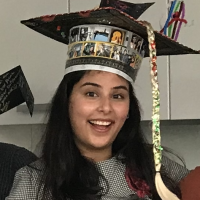
Kanika Sharma
Post Doc
ksharma997(at)gmail.com

Daniel Kowatschew
Post Doc
Daniel.Kowatschew(at)gmx.de
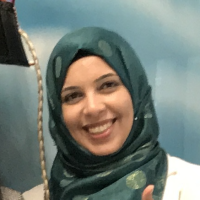
Asmaa Abu Obaid
Post Doc
asmaabuobied(at)yahoo.com
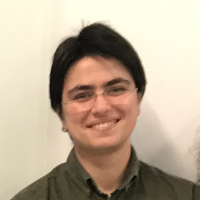
Güneş Birdal
PhD Student
gunesbirdal(at)hotmail.com
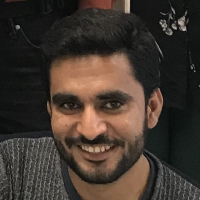
Shahzaib Hassan
PhD Student
shahzaib.hassande(at)gmail.com
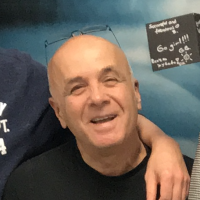
Mehmet Saltürk
Lab Manager
msaltuerk(at)yahoo.de
| Manish Tomar | Postdoc | |
| Adnan Syed | Postdoc | |
| Milan Dieris | graduate student | |
| Vladimir Shiryagin | graduate student | |
| Venkatesh S. Krishna | graduate student | |
| Sharzad Bozorg Nia | graduate student | |
| Ivan Ivandic | graduate student | Postdoc, UKB, Rheinische Friedrich-Wilhelms-Universität Bonn |
| Gaurav Ahuja | postdoc | Postdoc, ZMMK, CECAD, Cologne |
| Veronika Zapilko | postdoc | Postdoc, Université de Genève, Département de médecine, Genf |
| Kristina Auerswald | graduate student | Teaching Coordinator, University at Cologne, Köln |
| Ashiq Hussain | graduate student | Postdoc, MPI, Martinsried |
| Yuichiro Oka | postdoc | Assistant professor, Osaka |
| Luis R. Saraiva | graduate student | ESPOD fellow, Wellcome Trust Sanger, Cambridge |
| Yen-Yen Kwan | graduate student | Biotechnologist, Felda Biotechnology Centre, Bandar Enstek |
| Aswani Kotagiri Kumar | graduate student | Postdoc, UCLA, Los Angeles |
| Sunil Kumar Sukumaran | graduate student | Research Associate, Monell Chemical Senses Center, Philadelphia |
| Hans Ulrich Fried | graduate student | Head of Light Microscopic Facility, DZNE, Bonn |
| Verena Oehlmann | graduate student | Product Manager, Roche Pharma, Basel |
| Silke Argo | graduate student | Head of Management Office, National Genome Research Network, DKFZ, Heidelberg |
| Jun Li | graduate student | Global Clinical Development Operation, Merz Pharmaceuticals, Frankfurt |
| Stefan H. Fuss | graduate student | Associate Professor, Boǧaziçi, Istanbul |
| Arzu Celik | graduate student | Associate Professor, Boǧaziçi, Istanbul |
| Andreas Rummrich | graduate student | Department Head, Rheinische Akademie Köln, Cologne |
| Franco Weth | graduate student | Research Associate, KIT, Karlsruhe |
| Rainer W. Friedrich | graduate student | Senior Group leader and adjunct professor, FMI, Basel |
| Herwig Baier | graduate student | Max-Planck Director, Martinsried |
Publications
Recent Publications ↓
- Syed AS, Sharma K, Policarpo M, Ferrando S, Casane D, Korsching SI (2023) Ancient and nonuniform loss of olfactory receptor expression renders the shark nose a de facto vomeronasal organ. Mol Biol Evol. April 2023;40(4):msad076.
- Hussainy M, Korsching, SI, Tresch A (2022) Pseudotime analysis reveals novel regulatory factors for multigenic onset and monogenic transition of odorant receptor expression. Sci Rep. Sep 28;12(1):16183.
- Kowatschew D, Bozorg Nia S, Hassan S, Ustinova J, Weth F, Korsching, SI (2022) Spatial organization of olfactory receptor gene choice in the complete V1R-related ORA family of zebrafish. Sci Rep. Aug 31;12(1):14816.
- Kowatschew D, Korsching, SI (2022) Lamprey possess both V1R and V2R olfactory receptors, but only V1Rs are expressed in olfactory sensory neurons. Chem Senses. Jan 1;47:bjac007.
- Kowatschew D, Korsching, SI (2021) An ancient adenosine receptor gains olfactory function in bony vertebrates. Genome Biol Evol. 13(9):evab211.
- Dieris M, Kowatschew D, Korsching, SI (2021) Olfactory function in the trace amine-associated receptor family (TAARs) evolved twice independently. Sci Rep. Apr 8;11(1):7807.
- Liessem S, Kowatschew D, Dippel S, Blanke A, Korsching S, Guschlbauer C, Hooper SL, Predel R, Büschges A (2021) Neuromodulation can be simple: myoinhibitory peptide, contained in dedicated regulatory pathways, is the only neurally-mediated peptide modulator of stick insect leg muscle. The Journal of Neuroscience. JN-RM-0188-20.
- Behrens M, Di Pizio A, Redel U, Meyerhof W, Korsching SI (2020) At the root of T2R gene evolution: Recognition profiles of coelacanth and zebrafish bitter receptors. Genome Biol Evol. Jan 7;13(1):evaa264.
- Jurewicz, A, Ilyas, S, Uppal, J, Ivandic, I, Korsching, S, & Mathur, S (2020) Evaluation of Magnetite Nanoparticle-based Toxicity on Embryo-Larvae Stages of Zebrafish (Danio rerio). ACS Applied Nano Materials.
- Twickel Av, Kowatschew D, Saltürk M, Schauer M, Robertson B, Korsching S, Walkowiak W, Grillner S, Perez-Fernandez J (2019) Individual Dopaminergic Neurons of Lamprey SNc/VTA Project to Both the Striatum and Optic Tectum, but Restrict Co-release of Glutamate to Striatum Only. Curr Biol. 29:1-9.
- Sharma K, Syed AS, Ferrando S, Mazan S, Korsching SI (2019) The chemosensory receptor repertoire of a true shark is dominated by a single olfactory receptor family. Genome Biol Evol. 11(2):398–405.
- Shiriagin V, Korsching SI (2019) Massive expansion of bitter taste receptors in blind cavefish, Astyanax mexicanus. Chemical Senses. 44(1):23-32.
- Sharma K, Balfanz S, Baumann A, Korsching S. (2018) Full rescue of an inactive olfactory receptor mutant by elimination of an allosteric ligand-gating site. Sci Rep. 8(1):9631.
- Ahuja G, Reichel V, Kowatschew D, Syed AS, Kumar Kotagiri A, Oka Y, Weth F, Korsching SI (2018) Overlapping but distinct topology for zebrafish V2R-like olfactory receptors reminescent of odorant receptor spatial expression zones. BMC Genomics. 19:383.
- Syed AS, Sansone A, Hassenklöver T, Manzini I, Korsching SI (2017) Coordinated shift of olfactory amino acid responses and V2R expression to an amphibian water nose during metamorphosis. Cell Mol Life Sci. 74(9):1711-1719.
- Dieris M, Ahuja G, Krishna V, Korsching SI (2017) A single identified glomerulus in the zebrafish olfactory bulb carries the high-affinity response to death-associated odor cadaverine. Sci Rep. 7:40892.
- Sharma K, Ahuja G, Hussain A, Balfanz S, Baumann A, Korsching SI. (2016) Elimination of a ligand gating site generates a supersensitive olfactory receptor. Sci Rep. 6:28359.
- Zapilko V, Korsching SI. (2016) Tetrapod V1R-like ora genes in an early- diverging ray-finned fish species: the canonical six ora gene repertoire of teleost fish resulted from gene loss in a larger ancestral repertoire. BMC Genomics. 17:83.
- Syed AS, Sansone A, Röner S, Bozorg Nia S, Manzini I, Korsching SI. (2015) Different expression domains for two closely related amphibian TAARs generate a bimodal distribution similar to neuronal responses to amine odors. Sci Rep. 5:13935.
- Saraiva LR, Ahuja G, Ivandic I, Syed AS, Marioni JC, Korsching SI*, Logan DW. (2015) Molecular and neuronal homology between the olfactory systems of zebrafish and mouse. Sci Rep. 5:11487.
* co-senior author - Behrens M, Korsching SI, Meyerhof W. (2014) Tuning properties of avian and frog bitter taste receptors dynamically fit gene repertoire sizes. Mol Biol Evol. 31(12):3216-27.
- Syed AS, Korsching SI. (2014) Positive Darwinian selection in the singularly large taste receptor gene family of an 'ancient' fish, Latimeria chalumnae. BMC Genomics. 15:650.
- Behrens M, Frank O, Rawel H, Ahuja G, Potting C, Hofmann T, Meyerhof W, Korsching S. (2014) ORA1, a zebrafish olfactory receptor ancestral to all mammalian V1R genes, recognizes 4-hydroxyphenylacetic acid, a putative reproductive pheromone. J Biol Chem. 289(28):19778-88.
- Sansone A, Syed AS, Tantalaki E, Korsching SI, Manzini I. (2014) Trpc2 is expressed in two olfactory subsystems, the main and the vomeronasal system of larval Xenopus laevis. J Exp Biol. 217(Pt 13):2235-8.
- Ahuja G, Bozorg Nia S, Zapilko V, Shiriagin V, Kowatschew D, Oka, Y, Korsching SI (2014) Kappe neurons, a novel population of olfactory sensory neurons. Sci Rep. 4:4037.
- Sansone A, Hassenklöver T, Syed AS, Korsching SI and Manzini I (2014) Phospholipase C and diacylglycerol mediate olfactory responses to amino acids in the main olfactory epithelium of an amphibian. PLoS One. 9(1):e87721.
- Hussain A., Saraiva L.R., Ferrero D., Ahuja G, Krishna VS, Liberles SD, Korsching SI (2013) High-affinity olfactory receptor for the death-associated odor cadaverine. Proc. Natl. Acad. Sci, USA. 110(48):19579-84. media echo:
- Ahuja G, Ivandic I, Saltürk M, Oka Y, Nadler W, Korsching SI. (2013) Zebrafish crypt neurons project to a single, identified mediodorsal glomerulus. Sci Rep. 3:2063.
- Syed AS, Sansone A, Nadler W, Manzini I, Korsching SI. (2013) Ancestral amphibian v2rs are expressed in the main olfactory epithelium. Proc. Natl. Acad. Sci, USA. 110(19):7714-9.
- Gliem S, Syed AS, Sansone A, Kludt E, Tantalaki E, Hassenklöver T, Korsching SI*, Manzini I. (2013) Bimodal processing of olfactory information in an amphibian nose: odor responses segregate into a medial and a lateral stream. Cell Mol Life Sci. 70(11):1965-84.
* shared corresponding author
Publicatons 1990 – 2012 ↑ ↓
- Oka Y., Saraiva L.R., Korsching S.I. (2012) Crypt neurons express a single V1R-related ora gene. Chem Senses. 37(3):219-27.
- Oka Y., Korsching S.I. (2011) Shared and unique g alpha proteins in the zebrafish versus Mammalian senses of taste and smell. Chem Senses. 36(4):357-65.
- Hussain A., Saraiva L.R., Korsching S.I. (2009) Positive selection and the birth of an olfactory receptor clade in teleosts. Proc. Natl. Acad. Sci, USA. 106:4313-8.
- Oka Y., Saraiva L.R., Kwan, Y.-Y., Korsching S.I. (2009) The fifth class of G α proteins. Proc. Natl. Acad. Sci, USA. 106:1484-1489.
- Monfared P., Winkeler A., Klein M., Li H., Klose A., Hoesel M., Waerzeggers Y., Korsching S.I., Jacobs A.H. (2008) Noninvasive assessment of E2F-1-mediated transcriptional regulation in vivo. Cancer Res. 68:5932-40.
- Kraemer A. M., Saraiva L.R., Korsching S.I. (2008) Structural and functional diversification in the teleost S100 family of calcium-binding proteins. BMC Evol. Biol. 8:48.
- Saraiva, L.R. and Korsching, S.I. (2007) A novel olfactory receptor gene family in teleost fish. Genome Res. 17(10):1448-57.
- Oehlmann, V.D., Berger, S., Sterner, C. and Korsching, S.I. (2004) Zebrafish beta tubulin 1 expression is limited to the nervous system throughout development, and in the adult brain is restricted to a subset of proliferative regions. Mech Dev GEP. 4(2):191-198.
- Argo, S., Weth, F. and Korsching, S.I. (2003) Analysis of penetrance and expressivity during ontogenesis supports a stochastic choice of zebrafish odorant receptors from pre-determined groups of receptor genes. Eur J Neurosci.17. 17(4):833-843.
- Oehlmann, V.D., Korte, H., Sterner, C. and Korsching, S.I. (2002) A neuropeptide FF-related gene is expressed selectively in neurons of the terminal nerve in Danio rerio. Mech Dev. 117(1-2):357-361.
- Çelik, A., Fuss, S.H. and Korsching, S.I. (2002) Selective targeting of zebrafish olfactory receptor neurons by the endogenous omp promoter. Eur. J. Neurosci. 15:798-806.
- Fried, H.-U., Fuss, S.H. and Korsching, S.I. (2002) Selective imaging of presynaptic activity in the mouse olfactory bulb shows concentration- and structure dependence of odor responses in identified glomeruli. Proc. Natl. Acad. Sci, USA. 99:3222-3227.
- Fuss, S.H. and Korsching, S.I. (2001) Odorant feature detection: activity mapping of structure response relationships in the zebrafish olfactory bulb. J Neurosci. 21:8396-8407.
- Fried, H.-U., Linnig, H.-D. and Korsching, S.I. (2001) An inexpensive mouse headholder for optical recordings. Physiol Behav. 74:253-255.
- Friedrich, R.W. and Korsching, S.I. (1998) Chemotopic, combinatorial, and noncombinatorial odorant representations in the olfactory bulb revealed using a voltage-sensitive axon tracer. J Neurosci. 18: 9977-9988.
- Wellerdieck, C., Oles, M., Pott, L., Korsching, S., Gisselmann, G., and Hatt, H. (1997) Functional Expression Of Odorant Receptors Of the Zebrafish Danio Rerio and Of the Nematode C-Elegans In Hek293 Cells. Chemical Senses, 22(4):467-476.
- Fukada, K., Korsching, S. and Towle, M.F. (1997) Tissue-specific and ontogenetic regulation of LIF protein levels determined by quantitative enzyme immunoassy. Growth Factors. 14:279-295.
- Friedrich, R.W. and Korsching, S. (1997) Combinatorial and chemotopic odorant coding in the zebrafish olfactory bulb visualized by optical imaging. Neuron. 18:737-752.
- Weth, F., Nadler, W., and Korsching, S. (1996) Nested expression zones for odorant receptors in zebrafish olfactory epithelium. Proc. Natl. Acad. Sci, USA. 93: 13321-13326.
- Baier, H., Rotter, S. and Korsching, S. (1994) Connectional topography in the zebrafish olfactory system: random positions but regular spacing of sensory neurons projecting to an individual glomerulus. Proc. Natl. Acad. Sci, USA. 91:11646-11650.
- Baier, H. and Korsching, S. (1994) Zebrafish olfactory glomeruli form an invariant pattern and are identifiable across animals. Journal of Neuroscience. 14:219-230.
Older Publications (before 1990) ↑ ↓
- Yamamori, T., Fukada, K., Aebersold, R., Korsching, S., Fann M.-J., Patterson, P. (1989) The cholinergic neuronal differentiation factor from heart cells is identical to leukemia inhibitory factor. Science. 246:1412-1416.
- Hellweg, R., Bandtlow, C.E., Heumann, R. and Korsching, S. (1988) Nerve growth factor synthesis in cultured rat iris: modulation by endogenous transmitter substances. Exp. Cell Res. 179:18-30.
- Rohrer, H., Hofer, M., Hellweg, R., Korsching, S., Stehle, A.D., Saadat, S. and Thoenen, H. (1988) Antibodies against mouse nerve growth factor interfere in vivo with the development of avian sensory and sympathetic neurons. Development. 103:545-552.
- Korsching, S., Heumann, R., Davies, A. and Thoenen, H. (1988) Levels of nerve growth factor and its mRNA during development and regeneration of the peripheral nervous system. In: Neuronal Plasticity and Trophic Factors. Symposia in Neuroscience. Vol. 7 , pp. 23-33, eds. G.Biggio, P.F.Spano, G.Toffano, S.H.Appel and G.L.Gessa, Liviana Press-Springer Verlag.
- Korsching, S. and Thoenen, H. (1988) Developmental changes of nerve growth factor levels in sympathetic ganglia and their target organs. Dev. Biol. 126:40-46.
- Heumann, R., Bandtlow, C., Davies, A., Korsching, S., and Thoenen, H. (1987) The structure-function relationship of the nerve growth factor molecule and the regulation of its synthesis. Biochem. Soc. Trans. 15:131-132.
- Thoenen, H., Auburger, G., Hellweg, R., Heumann, R. and Korsching, S. (1987) Cholinergic innervation and levels of nerve growth factor and its mRNA in the central nervous system. Cholinergic Mechanisms. Vol.6, Cellular and Molecular Basis of Cholinergic Function, Buxton Symposium May 11-16, Ellis Harwood, Chichester.
- Auburger, G., Heumann, R., Hellweg, R., Korsching, S. and Thoenen, H. (1987) Developmental changes of nerve growth factor and its mRNA in the rat hippocampus: comparison with choline acetyltransferase. Dev. Biol. 120:322-328.
- Heumann, R., Korsching, S., Bandtlow, C. and Thoenen, H. (1987) Changes of nerve growth factor synthesis in nonneuronal cells in response to sciatic nerve transsection. J. Cell Biol. 104:1623-1631.
- Korsching, S. and Thoenen, H. (1987) Two-site enzyme immunoassay for nerve growth factor. Meth. Enzymol. 147:167-185.
- Davies, A.-M., Bandtlow, C., Heumann, R., Korsching, S., Rohrer, H. and Thoenen, H. (1987) Timing and site of nerve growth factor synthesis in developing skin in relation to innervation and expression of the receptor. Nature. 326:353-358.
- Korsching, S. (1986) The role of nerve growth factor in the CNS. Trends Neurosci. 9:570-573.
- Korsching, S., Heumann, R., Thoenen, H. and Hefti, F. (1986) Cholinergic denervation of the hippocampus by fimbria lesion leads to a transient accumulation of NGF without change in mRNANGF content. Neurosci. Lett. 66:175-180.
- Thoenen, H., Korsching, S., Heumann, R. and Acheson, A. (1985) Nerve growth factor. Ciba Foundation Symposium 116, Growth Factors in Biology and Medicine, pp.113-128, Pitman, London.
- Korsching, S., Auburger, G., Heumann, R. and Thoenen, H. (1985) Levels of nerve growth factor and its messenger RNA in the central nervous system of the rat correlate with cholinergic innervation. EMBO J. 4:1389-1393.
- Korsching, S. and Thoenen, H. (1985) Treatment with 6-OH-dopamine and colchicine decreases nerve growth factor levels in sympathetic ganglia and increases them in the corresponding target tissues. J. Neurosci. 5:1058-1061.
- Korsching, S. and Thoenen, H. (1985) Nerve growth factor supply for sensory neurons: Site of origin and competition with the sympathetic nervous system. Neurosci. Lett. 54:201-205.
- Heumann, R., Korsching, S., Scott, J. and Thoenen, H. (1984) Relationship between levels of nerve growth factor (NGF) and its messenger RNA in sympathetic ganglia and peripheral target tissues. EMBO J. 3:3183-3189.
- Barth, E.-M., Korsching, S. and Thoenen, H. (1984) Regulation of nerve growth factor synthesis and release in organ cultures of rat iris. J. Cell Biol. 99:839-843.
- Thoenen, H., Korsching, S., Barde, Y.-A. and Edgar, D. (1983) Quantitation and purification of neurotrophic molecules. Cold Spring Harbor Symp. Quant. Biol. 48:679-684.
- Korsching, S. and Thoenen, H. (1983) Quantitative demonstration of the retrograde axonal transport of endogenous nerve growth factor. Neurosci. Lett. 39:1-4.
- Korsching, S. and Thoenen, H. (1983) Nerve growth factor in sympathetic ganglia and corresponding target organs of the rat: correlation with density of sympathetic innervation. Proc. Natl. Acad. Sci, USA. 80:3513-3516.
- Naujoks, K.W., Korsching, S., Rohrer, H. and Thoenen, H. (1982) Nerve growth factor-mediated induction of tyrosine hydroxylase and of neurite outgrowth in cultures of bovine adrenal chromaffin cells: dependence on developmental stage. Dev. Biol. 92:365-379.
- Rohrer, H., Schaefer, T., Korsching, S. and Thoenen, H. (1982) Internalization of nerve growth factor by pheochromocytoma PC12 cells: absence of transfer to the nucleus. J. Neurosci. 2:687-697.
Reviews ↑
- Korsching SI (2020) Taste and smell in zebrafish: Receptor repertoires and receptor neurons, chapter 3.11 in The Senses: A Comprehensive Reference. 2nd Edition.
- Korsching SI (2020) Olfaction, chapter 14 in The Physiology of Fishes. CRC Press (Taylor and Francis). 5th Edition.
- Korsching, SI (2016) Aquatic olfaction. Chapter 5 in Chemosensory Transduction: Detection of Odor, Taste and Other Chemostimuli, eds. Frank Zufall and Steven Munger, Elsevier.
- Ahuja G., Korsching S.I. (2014) Zebrafish olfactory receptor ORA1 recognizes a putative reproductive pheromone. Comm. Int. Biol. 7(5):1-4.
- Meyerhof W., Korsching S.I. (2009) Chemosensory systems in mammals, fishes, and insects. Preface. Results Probl Cell Differ. 47:v-xi. PMID: 19655435
- Oka Y., Korsching S.I. (2009) The fifth element in animal G α protein evolution. Commun. Integrat. Biol. 2-3:1-3.
- Korsching S.I. (2009) The molecular evolution of teleost olfactory receptor gene families. Chemosensory Systems in Mammals, Fishes, and Insects. W. Meyerhof & S. Korsching, eds., Springer, Series: Results and Problems in Cell Differentiation, Vol 47, pp 1-19.
- Korsching, S.I. (2005) Selective imaging of the receptor neuron population in the olfactory bulb of zebrafish and mice. Chemical Senses. 30, i101-i102.
- Korsching, S.I. (2004) Olfactory receptors. Encyclopedia of Biological Chemistry. 3:149-154.
- Korsching, S.I. (2002) Olfactory maps and odor images. Curr. Opin. Neurobiol. 12:387-392.
- Korsching, S.I. (2001) Odor maps in the brain: Spatial aspects of odor representation in sensory surface and olfactory bulb. Cell. Mol. Life Sci. 58:1-11.
- Korsching, S.I., Friedrich, R.W., Rummrich, A., and Weth, F. (1999) Spatial representation of odors in the zebrafish olfactory epithelium and olfactory bulb. Advances in Chemical Signals in Vertebrates. 8:525-533.
- Korsching, S.I. (1997) The ontogenesis of stereotyped neuronal networks in the olfactory system of zebrafish, Danio rerio, Taniguchi Symp.20,133-142.
- Korsching, S.I., Argo, S., Campenhausen, H., Friedrich R.W., Rummrich, A. and Weth, F. (1997) Olfaction in zebrafish: What does a tiny teleost tell us?. Sem. Cell Dev. Biol. 8:181-187.
- Korsching, S. (1993) The neurotrophic factor concept: a reexamination, (feature article). Journal of Neuroscience. 13:2739-2748.
- Korsching, S. (1991) Sniffing out odorant receptors. Trends in Biochemical Sciences. 16:277-278.
Teaching
Journal Club
Every Friday, 10 am, we discuss a current publication somewhat related to our research interests. Interested students are welcome to join. Please inquire for location.
Seminar: „Was ist Wissenschaft?”
Zeit und Ort nach Vereinbarung, Anmeldung per e-Mail: sigrun.korsching(at)uni-koeln.de
Für Lehramtsstudenten (Hauptstudium) geeignet.
Wissenschaft ist nicht definiert durch ihr Thema, die verwendeten Arbeitsmethoden, oder die Leute, die sie anwenden. In diesem Seminar geht es darum, wodurch Wissenschaft, genauer die wissenschaftliche Methodik, definiert ist. Es gibt Vorlesungen und praktische Übungen. Bei Bedarf kann ein Schwerpunkt auf die Umsetzung im Schulunterricht gelegt werden.
Buch zum Thema: Stephen S. Carey's Buch „A beginner's guide to Scientific Method”, 3rd edition, ISBN 0-534-58450-090000
Seminar: „The Scientific Method: an Introduction“
Time and place: by arrangement. Contact by e-Mail: sigrun.korsching(at)uni-koeln.de
Für Lehramtsstudenten (Hauptstudium) geeignet.
Science is not defined by topics, techniques of investigation, or the people employing it. In its core, science is a method. This seminar gives a definition of science and uses practical examples to teach good science and how to distinguish it from bad science and pseudoscience. The seminar comprises lectures and practical exercises.
Literature: Stephen S. Carey's book „A beginner's guide to Scientific Method”, 3rd edition, ISBN 0-534-58450-090000
Further Teaching
Contribution to the teaching of the Genetics Institute.
Unconscious Bias Training
Scientists train long and hard to employ the scientific method to obtain valid insights about the world. But we are humans, which means our brains have the usual human quirks. We are not always successful in being objective, especially in assessing and interacting with other people.
I am offering seminars (1 hour) and workshops (2 hours) to understand the role of unconscious bias in hiring, mentoring, and promoting processes. My goal is to empower participants to detect unconscious bias, and to find constructive ways to handle it. I emphasize the importance of robust scientific studies measuring the effect of such biases, but also encourage open discussion of any viewpoints the audience might have.
If you are interested in me running a workshop or speaking at an event please inquire via email: sigrun.korsching@uni-koeln.de.
Recent events include:
| January 2023 | Seminar im Physikalischen Kolloquium der Universität Bremen |
| May 2022 | Evening talk for the General assembly of the Transregional Collaborative Research Center TR 172 on Arctic Amplification (AC)³ in Bad Honnef |
Open Positions
Graduate Studies
The Korsching lab is a member of the Neuroscience Research Training Group (RTG 1960) "Neural Circuit Analysis on the Cellular and Subcellular Level". Additional funding may be available. Please inquire for possibilities.
Research Projects
Research projects at the Bachelor and Master level are possible. Please inquire about available time slots and topics.
Internships / Practical Courses
Internships (also for international students) and practical courses (elective modules) can be performed. All internships and practical courses will have novel research topics. Please inquire.
